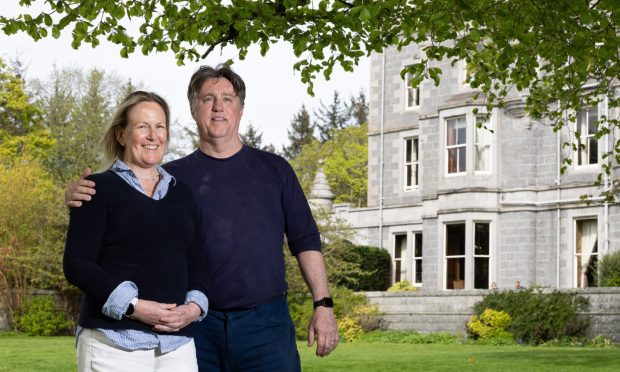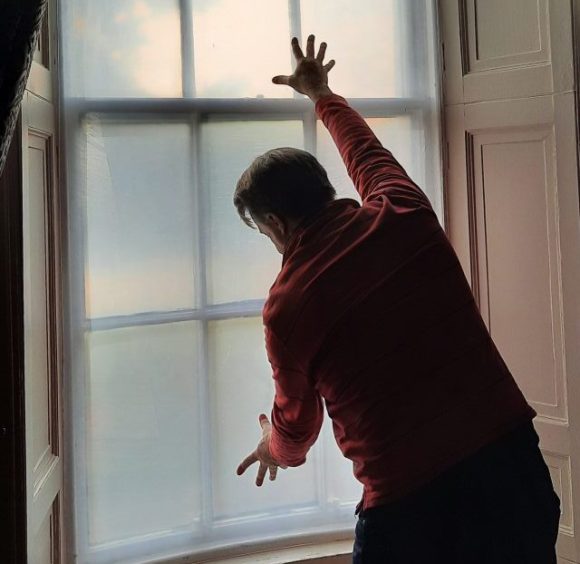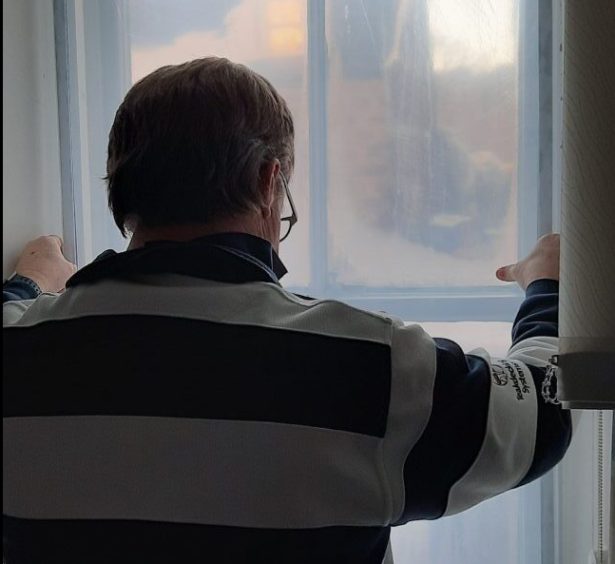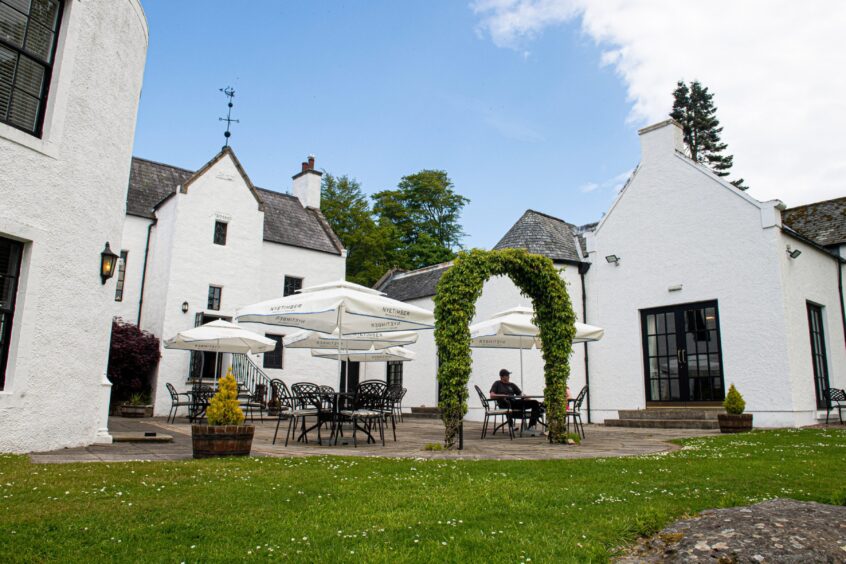An entrepreneurial husband-and-wife duo from Aberdeen have launched a new business to help keep out draughts and reduce heat loss from old buildings.
Campbell and Luci Carey run Inglaze alongside their day jobs.
Mr Carey is as a hotel maintenance manager at Ardoe House Hotel, near Aberdeen.
Mrs Carey is a lecturer in commercial law at Aberdeen University.
How did their idea for Inglaze come about?
They got their spark of inspiration from a DIY job while living in Singapore.
The old building they were staying in at the time had a few windows without glass.
So, to keep beasties out and air-conditioned air in they came up with an innovative, temporary solution.
And on their return to the UK, they thought the idea could be applied in another way – to keep heat in.
They have spent time developing and improving their patent-pending technology.
At the heart of it is a transparent acrylic panel which is attached to single-glazed windows magnetically.
The specially designed seal is manufactured from recycled household plastics such as milk cartons.
It is said to create a strong barrier to ensure airtightness, even on irregular-shaped window frames.
The system was designed with listed and traditional granite buildings in mind.
Double glazing is often prohibited or expensive to install in these properties.
Net-zero role for Inglaze
Initial estimates suggest the product can reduce heat loss by around 60% and cut energy costs by 20%.
A 2023 report from the Glass and Glazing Federation and British Glass found 24% of the UK’s carbon emissions are from the residential sector.
Inglaze, in seeking to reduce this, aims to play key a role in helping Scottish buildings contribute to net-zero goals.
The new firm is targeting business customers with old properties, as well as households.
It has already installed panels at two north-east hotels, Maryculter House and Banchory Lodge.
£35,000 funding support
Mr and Mrs Carey recently secured a total of £35,000 from the British Business Bank’s Start Up Loans programme and DSL Business Finance to bring their product to market.
Mrs Carey said: “Scotland has a plethora of old buildings that need updating to improve their energy efficiency.
“However, for many properties, the process of changing windows to modern double or triple glazing can be expensive, messy and complicated in terms of planning permission.
“Heating our homes and commercial buildings accounts for more than one-third of the UK’s emissions, so to achieve net-zero we need to make some changes.”
She added: “With our new glazing technology, we are aiming to boost the energy efficiency in homes and commercial buildings that have traditional-style windows in a damage-free, relatively low-cost way.
“Over the next few months we’ll be gathering real data that will show future customers exactly how much energy can be saved.”
The British Business Bank’s Start Up Loans programme has supported 470 entrepreneurs and delivered more than £5 million to new business owners in Aberdeen and Aberdeenshire since it was launched in 2012.
Inglaze is a great example of an innovative idea that could have a big impact on energy consumption for homes and commercial properties.”
British Business Bank
Barry McCulloch, senior manager, UK Network, Scotland at the bank, said: “Smaller businesses have a valuable role to play in the transition to net-zero.
“Inglaze is a great example of an innovative idea that could have a big impact on energy consumption for homes and commercial properties. We look forward to seeing the results and helping the founders to deliver sustainable improvements to buildings all over the country.”
DSL Business Finance load officer Rekha Welsh said: “I was very impressed by Luci and Campbell’s expertise in this field and the thorough research they’ve conducted.
“Their magnetic glazing technology not only improves energy efficiency but also demonstrates how entrepreneurship can lead to sustainable solutions.”




Conversation